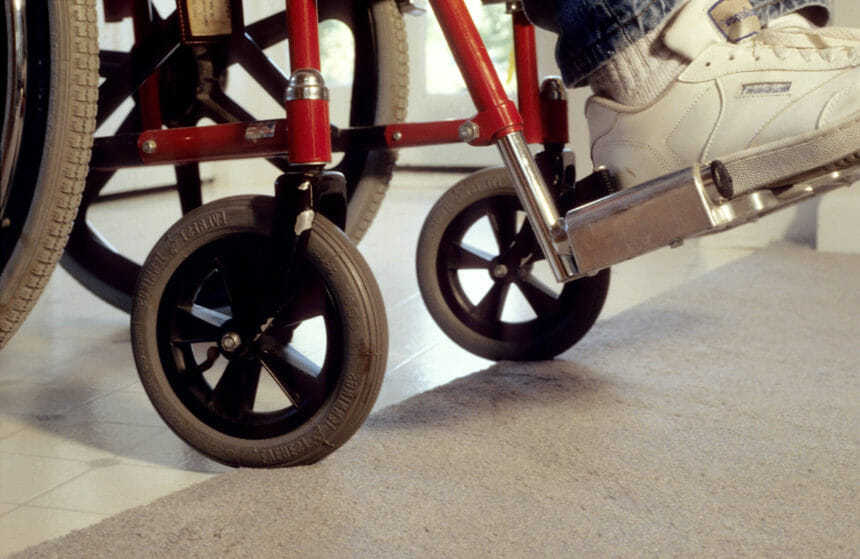
A New York City adult care facility resident who claimed in a federal lawsuit that she was barred from remaining in her apartment because she uses a wheelchair must be allowed to return to the unit, a federal judge has ruled in a preliminary injunction.
The facility does not have to re-enroll the resident in its assisted living program, however, the judge said.
The resident, identified as Jane Doe in court documents, is a plaintiff in a lawsuit filed by the Fair Housing Justice Center earlier this year. The complaint claims that the state of New York and four related adult homes discriminate against people with disabilities who use wheelchairs.
Doe lived at an adult care facility with an enriched housing program, VillageCare, owned by Village Housing Development Fund Corp. According to court documents, Doe had been a resident of VillageCare for more than five years when in April 2017, she was hospitalized due to complications due to a urinary tract infection. She subsequently was transferred to a nursing home for rehabilitation, where she began using a wheelchair. VillageCare assessed her in June 2017 and determined that she needed services beyond what its assisted living program could provide. VillageCare began eviction proceedings two months later.
Doe now uses a rollator and a wheelchair and has continued to live at the nursing home. U.S. District Court Judge Vernon S. Broderick noted in his ruling, however, that Doe said she lacks privacy and the ability to personalize her space, and that her physical and social abilities are declining because she is confined to bed much of the time and “few of the other residents at the nursing home function at a level sufficient to hold conversation.”
Broderick said he issued the Sept. 10 injunction, reported Thursday by the FHJC, because “the evidence indicates that Plaintiff is likely to establish that VillageCare had a policy of not admitting individuals who used wheelchairs, and after conducting a visual assessment indicating that Jane Doe used a wheelchair and had difficulties with her mobility, terminated Jane Doe’s admission on the basis of her wheelchair use.”
VillageCare, according to court documents, had claimed that it did not accept assisted living residents who depend on wheelchairs because it was bound by state requirements.
In May the state Department of Health issued emergency amendments to regulations governing eligibility to assisted living programs, eliminating wording that such programs “should not accept nor retain any person who … is ‘chronically chairfast,’ ” and adding: “An operator shall not exclude an individual on the sole basis that such individual is a person who primarily uses a wheelchair for mobility, and shall make reasonable accommodations to the extent necessary to admit such individuals, consistent with the Americans with Disabilities Act…”
Until May, the state regulations had not been updated since the passage of the ADA, the Affordable Care Act and the amendments to the federal Fair Housing Act as well as since the Supreme Court’s decision in Olmstead v. L.C., according to the FHJC.
Instead of ordering that VillageCare re-enroll Doe in its assisted living program, however, Broderick noted that both sides in the lawsuit had agreed that enrolling Doe in a Medicaid managed long-term care program would be a suitable resolution to the dispute, assuming she qualifies. All of VillageCare’s assisted living residents will transition into and be covered by managed long-term care programs by the end of the year, in line with a move by the state Department of Health, he noted.



